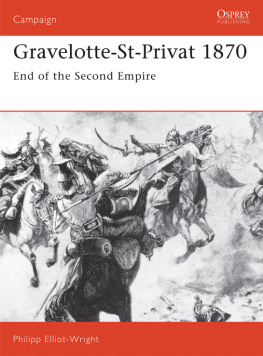PENGUIN BOOKS
THE FALL OF PARIS
Sir Alistair Home was born in London in 1925, and has spent much of his life abroad, including periods at schools in the United States and Switzerland. He served with the R.A.F. in Canada in 1943 and ended his war service with the rank of Captain in the Coldstream Guards attached to MI5 in the Middle East. He then went up to Jesus College, Cambridge, where he read English Literature and played international ice-hockey. After leaving Cambridge, Sir Alistair concentrated on writing: he spent three years in Germany as correspondent for the Daily Telegraph and speaks fluent French and German. His books include Back into Power (1955); The Price of Glory: Verdun 1916 (Hawthornden Prize, 1963); The Fall of Paris: The Siege and the Commune 187071 (1965); To Lose A Battle: France 1940 (1969); Small Earthquake in Chile (1972, paperback reissued 1999); A Savage War of Peace: Algeria 195462 won both the Yorkshire Post Book of the Year Prize and the Wolfson History Award in 1978 (revised paperback edition 2006). His other publications include The French Army and Politics 18701970 (1984), which was awarded the Enid Macleod Prize in 1985, Harold Macmillan, Volumes I and II (198891), A Bundle from Britain (1993), a memoir about the USA and World War II; The Lonely Leader: Monty 19441945 (1996); Seven Ages of Paris: Portrait of a City (2003); Friend or Foe: A History of France (2004) and The Age of Napoleon (2004). In 1969 he founded a Research Fellowship for young historians at St Antonys College, Oxford. In 1992 he was awarded the CBE; in 1993 he received the French Lgion dHonneur for his work on French history and his Litt.D. from Cambridge University. He was knighted in 2003. He is currently working on an authorised biography of Henry Kissinger, as well as a second volume of his own memoirs.
A LISTAIR H ORNE
THE FALL OF PARIS
THE SIEGE AND THE COMMUNE 187071

PENGUIN BOOKS
PENGUIN BOOKS
Published by the Penguin Group
Penguin Books Ltd, 80 Strand, London WC2R 0RL , England
Penguin Group (USA) Inc., 375 Hudson Street, New York, New York 10014, USA
Penguin Group (Canada), 90 Eglinton Avenue East, Suite 700, Toronto, Ontario, Canada M4P 2Y3
(a division of Pearson Penguin Canada Inc.)
Penguin Ireland, 25 St Stephens Green, Dublin , Ireland
(a division of Penguin Books Ltd)
Penguin Group (Australia), 250 Camberwell Road, Camberwell, Victoria 3124, Australia
(a division of Pearson Australia Group Pty Ltd)
Penguin Books India Pvt Ltd, 11 Community Centre, Panchsheel Park, New Delhi - 110 017, India
Penguin Group (NZ), 67 Apollo Drive, Rosedale, North Shore 0632, New Zealand
(a division of Pearson New Zealand Ltd)
Penguin Books (South Africa) (Pty) Ltd, 24 Sturdee Avenue, Rosebank, Johannesburg 2196,
South Africa
Penguin Books Ltd, Registered Offices: 80 Strand, London WC2R 0RL , England
www.penguin.com
First published by Macmillan 1965
Revised edition first published by Papermac 1990
Published in Penguin Books 2007
Copyright Alistair Horne, 1965, 1990
All rights reserved
The moral right of the author has been asserted
Except in the United States of America, this book is sold subject to the condition that it shall not, by way of trade or otherwise, be lent, re-sold, hired out, or otherwise circulated without the publishers prior consent in any form of binding or cover other than that in which it is published and without a similar condition including this condition being imposed on the subsequent purchaser
ISBN: 978-0-14-193917-9
For CAMILLA
Paris goes her own way. France, irritated, is forced to follow; later she calms down and applauds; it is one of the forms of our national life. A coach passes flying a flag; it comes from Paris. The flag is no longer a flag, it is a flame, and the whole trail of human gunpowder catches fire behind it.
To will always, this is the fact about Paris. You think she sleeps, no, she wills. The permanent will of Parisit is of this that transitory governments are not enough aware. Paris is always in a state of premeditation. The clouds pass across her gaze. One fine day, there it is. Paris decrees an event. France, abruptly summoned, obeys.
This smouldering between Paris the centre and France the orbit, this struggle which resembles a swaying of the forces of gravity, this alternating between resistance and adherence, these bursts of temper of the nation against the city followed by acquiescence, all indicate clearly that Paris, this head, is more than the head of a people. The movement is French, the impulsion is Parisian.
From the Introduction by Victor Hugo to the Paris Guide, 1867.
Contents
PART ONE
THE SIEGE
CHAPTER
PART TWO
THE COMMUNE
List of Illustrations
;
List of Maps
MAP
Foreword
DURING the crisis of June 1940, the French Government led by Paul Reynaud, having abandoned Paris and making its uneasy way towards Tours and Bordeaux, left strict instructions with the Prefect of Police in Paris, Roger Langeron: he was to stay in the city, along with his whole force of agents de ville, in order to forestall the possibility of a Communist coup in the absence of the Government. They were to await the arrival of the German military command so as to ensure that no barricades went up in Clichy, Belleville, and the eastern and south-eastern suburbs. Of course there was no hint of a coup, and, at the time, the French Communist Party was largely leaderless and in full disarray. Monsieur Langeron contacted the German authorities as soon as they arrived, assuring them that the Paris police force of 15,000 was at their disposal. Order was preserved
Of course M. Langeron and his superiors had learnt from past experience and were well aware of the terrible weight of history, the compelling pull of historical memory and precedent in the apparently endless conflict of Paris versus France, in that order. May 1795, the collapse of the Prairial Days and the occupation of the Fauborg Saint-Antoine by the Army had looked after Paris for a time: thirty-five years, something of a record, as it would turn out. The switch-overs of 1814 and 1815 had been effected painlessly, thanks to the good sense of the Provisional Government in insisting on the rapid deployment within the city of the Allied troops. Paris had remained quiet. Louis XVIII had even set up his Court within a city in which his brother had been murdered: both a measure of his own confidence, reinforced, it should be added, by the presence of a substantial Royal Guard, and a striking example of his desire to reign as le Roi de la Concorde and the King of Forgiveness. He had been remarkably successful in both objectives. But he had been old and ill, and his foolish successor had not appeared to have forgotten or forgiven anything.
And so, after a blessed pause of thirty-five years, the whole obscene business had started up again in the murderous July Days of 1830, with some hundreds of victims later commemorated by name on the July Column. In order to avoid further bloodshed, Charles X had left Saint-Cloud for Rambouillet and had made his leisurely way to the coast, embarking for England. At the same time, the incurably silly, posturing Lafayette had made a second appearance, indeed a Second Coming, on the balcony of the old Htel-de-Ville, where he was able to persuade the usurper, Louis-Philippe, to drape himself in the tricolor flag, a gesture that did the trick, at least for the time being.
Next page







